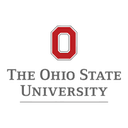Science and Engineering Associate 3
Job Description
Stanford University is seeking a Science and Engineering Associate 3 to oversee and perform advanced technical research utilizing and/or developing complex experimental equipment, devices, specimens, plans, designs, reports, and/or data analysis. Contributes to or may have responsibility for the planning, design and implementation of complex multiple disciplinary projects. Provides supervision and instruction to technicians, and/or support staff.
Duties include:
- Support complex scientific and research programs; analyze data, monitor and oversee experimental process, and design and develop prototypes, specialized equipment, and/or systems.
- Collaborate with scientists, engineers, or senior administrative officers to oversee complex non-routine analyses, select optimum solutions, design and develop special purpose equipment and/or systems, and perform corrective modifications to equipment and system designs.
- Contribute to or may have lead responsibility for the planning, design, and implementation of scientific or engineering initiatives, and work toward project objective.
- Oversee and make decisions independently for operation, maintenance, and development of laboratory space.
- Oversee and prepare periodic financial and technical reports and operating plans.
- Clarify and resolve complex technical issues with substantial significance and impact, which may span multiple areas, using advanced technical and professional knowledge.
- Serve as a resource in review of research proposals and research capabilities and make recommendations.
- Establish, communicate, and enforce compliance with health and safety policies and procedures.
- Oversee development of training manuals and safety guidelines, and train new instrumentation users, researchers, and/or technical staff.
- Perform supervisory duties, including hiring, performance management, and related duties, overseeing the work of technicians and other staff associated with the group/project, supervising the installation, maintenance, troubleshooting, and operation of complex scientific or engineering projects, and training technicians, operators, and others working in a particular scientific or engineering function area.
- Other duties may also be assigned.
Desired Qualifications:
A strong candidate does not need to possess ALL of the following qualifications, but should have at least some of these skills: Significant prior research and management experience, preferably in an engineering or cardiovascular-related field. The ability to think critically and carry out experiments independently is required. Background in mechanical engineering, biomedical engineering, bioengineering, computer science or related quantitative field. Strong engineering fundamentals in fluid and solid / continuum mechanics, numerical methods, and/ or computational science, preferably with a PhD in engineering or related field. Solid software engineering skills including as programming in Python and / or Matlab. Experience with CAD software and/or 3D modeling software. Familiarity with image analysis (3D Slicer, Mimics) or medical imaging (optional). Extensive experience running engineering simulations and performing associated analysis of simulation results. This includes finite element methods or computational fluid dynamics (Simvascular). Confidence with troubleshooting simulation results to ensure high quality outputs is needed. If coming from an engineering-oriented background, basic knowledge of anatomy/physiology are recommended. Advanced writing and reading ability, which could be demonstrated via prior publications. Knowledge of cardiovascular/cardiopulmonary anatomy & physiology. Developmental biology knowledge may also be beneficial as our work focuses on congenital heart diseases. Prior experience leading a team and project management working in a multidisciplinary environment, including excellent communication skills. Ability to independently develop efficient workflows for performing computational modeling and simulation in a fast-paced clinical setting. Excellent attention to detail and ability to implement quality assurance protocols for image segmentation and simulation results.
Education & Experience (Required):
Bachelor's degree in engineering, science, or related field and six years of relevant experience; or a combination of education and relevant experience.
Knowledge, Skills and Abilities (Required):
Demonstrated knowledge and skills of advanced scientific or engineering principles and practices. Extensive experience applying complex scientific and engineering principles and performing special technical services and the ability to articulate and translate implementation requirements to the planning, design, development, operations, and performance of complex equipment and systems. In-depth experience using software applications, systems, or programs relevant for the job. Ability to supervise others in oversight and management of instrumentation or system installation. Demonstrated ability to oversee, maintain, and develop a laboratory space including demonstrated ability to and supervise the work of technicians and other staff associated with the group. Demonstrated ability to critically review research proposals, evaluate research capabilities, and make recommendations. Demonstrated ability to establish, communicate, and enforce compliance with health and safety policies and procedures. Demonstrated ability to effectively supervise and train a diverse work staff.
Physical Requirements:
Frequently grasp lightly/fine manipulation, perform desk-based computer tasks, lift/carry/push/pull objects that weigh up to 10 pounds. Occasionally stand/walk, sit, twist/bend/stoop/squat, grasp forcefully. Rarely kneel/crawl, climb (ladders, scaffolds, or other), reach/work above shoulders, use a telephone, writing by hand, sort/file paperwork or parts, operate foot and/or hand controls, lift/carry/push/pull objects that weigh >40 pounds.
Working Conditions:
May be exposed to high voltage electricity, radiation or electromagnetic fields, lasers, noise > 80dB TWA, Allergens/Biohazards/Chemicals /Asbestos, confined spaces, working at heights >=10 feet, temperature extremes, heavy metals, unusual work hours or routine overtime and/or inclement weather. May require travel.
Work Standards:
Interpersonal Skills: Demonstrates the ability to work well with Stanford colleagues and clients and with external organizations. Promote Culture of Safety: Demonstrates commitment to personal responsibility and value for safety; communicates safety concerns; uses and promotes safe behaviors based on training and lessons learned. Subject to and expected to comply with all applicable University policies and procedures, including but not limited to the personnel policies and other policies found in the University's Administrative Guide.
The expected pay range for this position is $132,996 to $157,641 per annum. Stanford University provides pay ranges representing its good faith estimate of what the university reasonably expects to pay for a position. The pay offered to a selected candidate will be determined based on factors such as (but not limited to) the scope and responsibilities of the position, the qualifications of the selected candidate, departmental budget availability, internal equity, geographic location and external market pay for comparable jobs.
Whoops! This job is not yet sponsored…
Or, view more options below
View full job details
See the complete job description, requirements, and application process
Express interest in this position
Let Stanford University know you're interested in Science and Engineering Associate 3
Get similar job alerts
Receive notifications when similar positions become available













